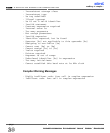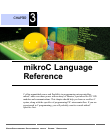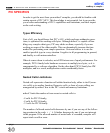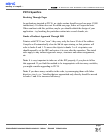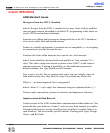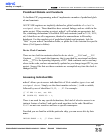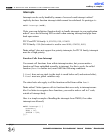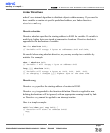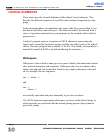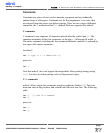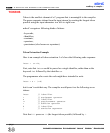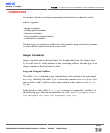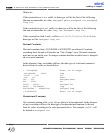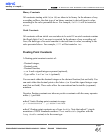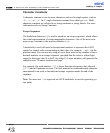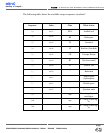
These topics provide a formal definition of the mikroC lexical elements. They
describe the different categories of word-like units (tokens) recognized by a lan-
guage.
In the tokenizing phase of compilation, the source code file is parsed (that is, bro-
ken down) into tokens and whitespace. The tokens in mikroC are derived from a
series of operations performed on your programs by the compiler and its built-in
preprocessor.
A mikroC program starts as a sequence of ASCII characters representing the
source code, created by keystrokes using a suitable text editor (such as the mikroC
editor). The basic program unit in mikroC is the file. This usually corresponds to a
named file located in RAM or on disk and having the extension
.c.
Whitespace
Whitespace is the collective name given to spaces (blanks), horizontal and vertical
tabs, newline characters, and comments. Whitespace can serve to indicate where
tokens start and end, but beyond this function, any surplus whitespace is discard-
ed. For example, the two sequences
int i; float f;
and
int i;
float f;
are lexically equivalent and parse identically to give the six tokens.
The ASCII characters representing whitespace can occur within literal strings, in
which case they are protected from the normal parsing process (they remain as
part of the string).
mikroC
- C Compiler for Microchip PIC microcontrollers
mikroC
making it simple...
36
MikroElektronika:
Development
tools
-
Books
-
Compilers
page
LEXICAL ELEMENTS



